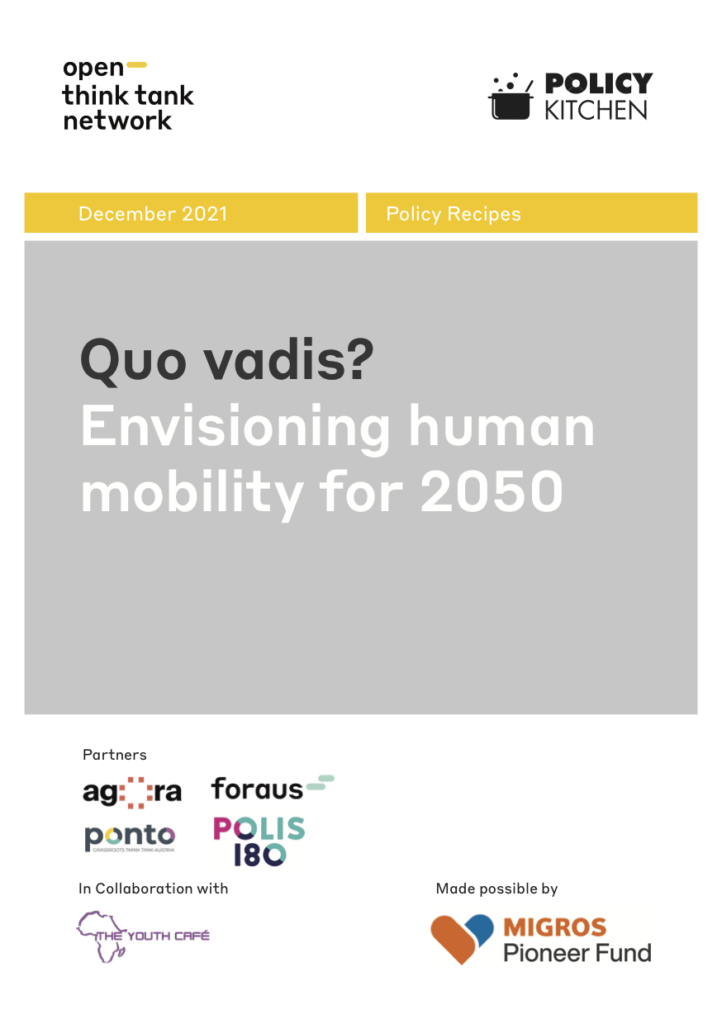Isabel war zwischen 2020 und 2023 Co-Leiterin des Programms Europa bei foraus. Sie hat an der Universität Zürich und am Graduate Institute in Genf Politikwissenschaft und Internationale Beziehungen studiert und war u.a. bei der Delegation der EU für die Schweiz tätig. Sie ist Mitautorin einer Studie zum gesellschaftlichen Diskurs über die Beziehungen zwischen der Schweiz und Europa. Während ihres Engagements bei foraus war sie als Projektleiterin beim Migros-Pionierfonds tätig und befähigte Menschen mit Ideen für eine zukunftsfähige Gesellschaft.
Publications by Isabel Knobel

Vor genau einem Jahr im Februar 2022, präsentierte der Bundesrat einen neuen Verhandlungsansatz, um die Schweiz aus der europapolitischen Blockade zu führen. Inzwischen haben Sondierungsgespräche mit der EU stattgefunden, doch noch bestehen Hindernisse für eine einvernehmliche Lösung zur Fortsetzung des bewährten bilateralen Wegs. Diese gilt es zu überwinden.
Zur Weiterentwicklung des bilateralen Wegs schlägt dieses Diskussionspapier einen bilateralen Pakt mit der EU vor. Mit den drei Dimensionen “Werte”, “Menschen” und “Zusammenarbeit” identifiziert dieses Diskussionspapier 15 Bedürfnisse der Schweiz und der EU, darunter Gleichbehandlung, Flexibilität und Effizienz, und analysiert zu welchem Grad sie tatsächlich ein Problem in den Verhandlungen darstellen.

25 février 2022 : voilà presque un an depuis que le Conseil fédéral a présenté sa nouvelle approche de négociations pour sortir la politique européenne de la Suisse de l’impasse. Malgré plusieurs entretiens exploratoires menés avec l’UE dans l’intervalle, les obstacles à une solution consensuelle sur la pérennisation de la voie bilatérale persistent et doivent encore être surmontés.
Ce papier de discussion propose un pacte bilatéral avec l’UE pour l’avenir des relations Suisse-UE. En lien avec les trois dimensions “valeurs”, “personnes” et “échanges”, le papier de discussion identifie 15 besoins de la Suisse et de l’UE – parmi lesquels figurent l’égalité de traitement, la flexibilité ou l’efficacité – et analyse à quel degré ils constituent un obstacle dans les négociations.

One year into the coronavirus pandemic that brought the world to a halt, the Open Think Tank Network’s grassroots think tanks partnered with the Kenyan-based youth empowerment organization, The Youth Café, to reflect on the impact of current transformative events on the various forms of migration. Recognizing that the future is unpredictable and with the aim of unraveling the range of possibilities it holds, a methodology to democratize strategic foresight was pioneered. The project engaged over one hundred participants from across the globe in a three-part workshop series and on the innovation platform Policy Kitchen. This report and an accompanying podcast series are the results of the participatory strategic foresight process. Diverse perspectives on the future of migration and crowd-sourced migration policy actions were ideated throughout the project. The project team regrouped the ideas into four key avenues for policymaking to set the political course for the participants’ visions of the future today, which are the following: Fair remuneration and inclusive working conditions; addressing the positive impact of migration on the social and economic challenges of an aging society; increase the decision-making power of cities and local level actors in migration management; and strengthening of urban-rural linkages in the context of climate change resilience and adaptation.





